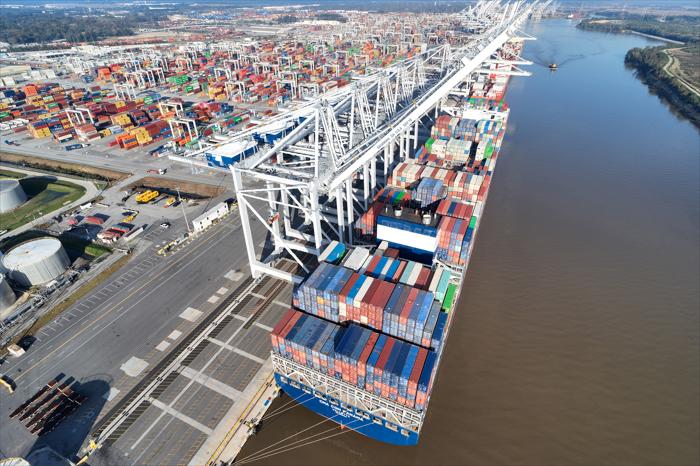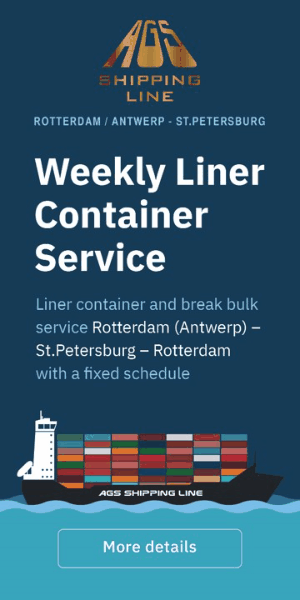Port of Auckland has released its half-year results reporting solid financial and operational performance across its key business segments and confirming it remains on track to meet full-year targets.
Revenue for the period reached NZD 204.3 million, an increase of NZD 8.8 million or 4.5 percent on the first half of FY25.
Underlying net profit after tax came in at NZD 53.8 million, up NZD 11.8 million or 28.1% on the comparable prior period.
The Port of Auckland Board declared an interim dividend of NZD 26 million to Auckland Council on the back of these results.
Volume growth was a primary driver of the improved performance. The Container Terminal averaged 16,800 TEU per week, contributing to total half-year throughput of close to 500,000 TEU.
Car import volumes rebounded strongly, rising 22 percent year-on-year, while bulk and breakbulk cargo reached 1.7 million tonnes and vehicle throughput totalled 100,000 units across the period.
Alongside revenue growth, the port maintained firm control over its cost base, with direct operating expenses down 3% on the same period last year.
CEO Roger Gray attributed the results to operational discipline and the safe management of higher cargo volumes, and pointed to emerging signs of broader economic strengthening in the Auckland region as a positive indicator for the second half of the financial year.
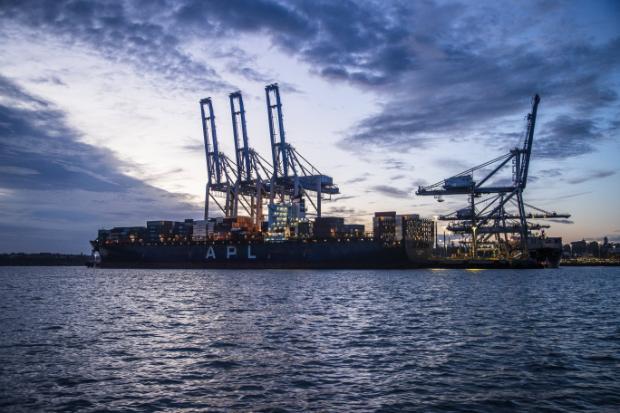
PSA Antwerp has marked a major milestone in its Project Emerald modernization programme with the arrival of five new mega ship-to-shore (STS) cranes at Europa Terminal.
Built to handle the world's largest container vessels, the cranes are the biggest STS units ever ordered for the Port of Antwerp-Bruges. Their arrival strengthens Europa Terminal's readiness for the next generation of ultra-large container ships.
Boosting Capacity and Performance
Each crane will stand 52 metres tall and offer an outreach of 71.8 metres, allowing them to serve vessels up to 26 containers wide. With a dual-hoist lifting capacity of up to 112 tonnes, the cranes will improve berth productivity, operational efficiency and service reliability.
The new equipment forms a core part of Project Emerald, a joint initiative between PSA Antwerp and the Port of Antwerp-Bruges to modernise Europa Terminal and expand its handling capacity.
Advancing Safety and Technology
The cranes feature advanced anti-sway systems, remote diagnostics, high-precision controls and integrated digital monitoring. Operators will work in ergonomically designed cabins and use virtual reality-based training tools to enhance safety and skills development.
Integrated lashing platforms allow coning and deconing activities to take place on elevated platforms. This separates lashing teams from terminal traffic and reduces ground-level risk.
Supporting Sustainable Operations
Aligned with PSA's sustainability strategy, the cranes use energy-efficient electric drives, regenerative power systems and smart-grid compatibility. These features reduce energy consumption and emissions during vessel handling.
Project Emerald Progress
The crane delivery marks a key milestone in Phase 1 of Project Emerald. The programme also includes deepening, reorienting and extending the quay wall to accommodate larger vessels.
Project Emerald is expected to increase Europa Terminal's capacity by 800,000 TEUs annually while enhancing efficiency, reliability and sustainability. The cranes are scheduled to become operational in the second half of 2026, following assembly, testing and safety checks.
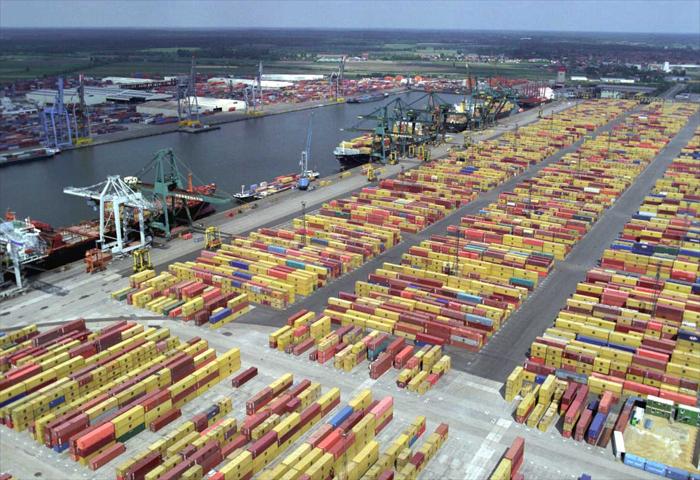
The proposed acquisition of ZIM Integrated Shipping by Hapag-Lloyd is raising strategic questions for transpacific shippers and for MSC.
A key issue is the existing vessel-sharing agreement (VSA) between ZIM and MSC on Asia–US East Coast services. If ZIM is absorbed into Hapag-Lloyd’s network, the future of these joint services becomes uncertain. They could either be integrated into Hapag-Lloyd’s structure or discontinued.
For shippers, this creates uncertainty around service continuity, capacity availability, and routing options on the transpacific trade. For MSC, the potential loss of cooperation with ZIM may require network adjustments or the launch of replacement services to maintain market presence.
Overall, the takeover could reshape competitive dynamics and capacity deployment on key Asia–North America routes, with implications for service structure and market balance.
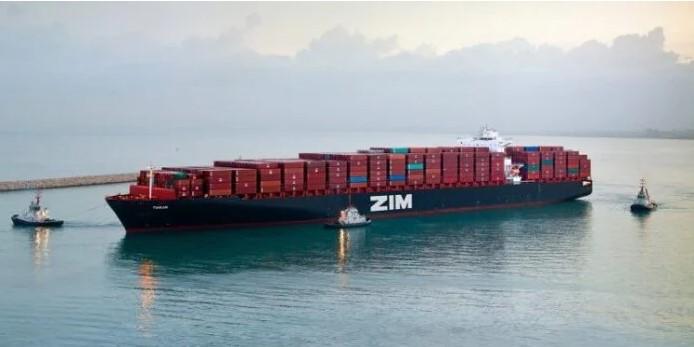
Hapag-Lloyd has agreed to pay $4.2Bn to acquire ZIM in the largest carrier consolidation move since 2017 when COSCO acquired OOCL. The deal will still require regulatory approvals and triggered a protest strike at Zim’s head office in Israel over the weekend. It comes as carriers’ ability to halt the rate slump will be tested again via another GRI push planned on 1 March despite the weaker cargo demand after the Chinese New Year holidays. The transpacific route is most at risk as carriers are inexplicably adding more transpacific capacity this year despite the weakening demand, setting the stage for a potential rate war. In contrast, Transatlantic capacity will be cut in response to the lower demand.
Maersk has made another U-turn as it diverts the first vessel scheduled to make the eastbound Suez transit on the MECL back to the Cape route last week, putting their plans to return to the Suez in doubt. Adverse weather conditions at the Bay of Biscay last week continues to disrupt ship schedules in and out of Europe, but it fails to explain Maersk’s U-turn as the ship was already in Mediterannean waters before it was redirected to turn south to take the longer Cape route.
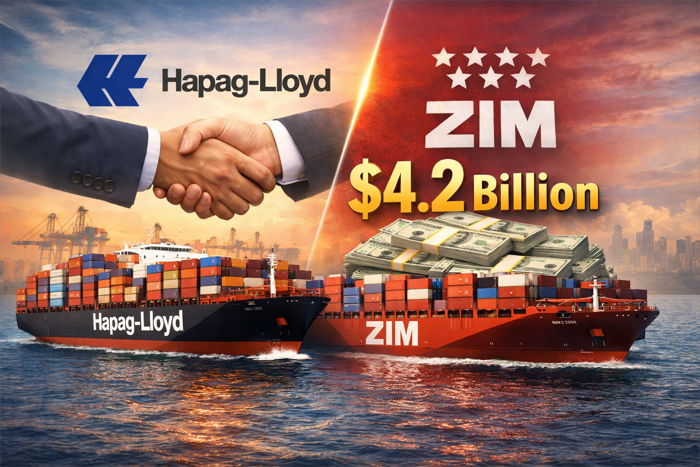
Pilbara Ports delivered a total monthly throughput of 67.9 million tonnes for January 2026, a 12 percent increase compared to January 2025 and marks the highest January on record.
This figure can be attributed to a series of targeted operational changes implemented at the Port of Port Hedland in recent months.
Operational changes included revised vessel movement guidelines for ebb-tide departures, creating sailing opportunities for an additional 10 large vessels.
Together with ongoing improvements to Dynamic Under Keel Clearance, these changes have enabled vessels to utilize available sailing windows, safely maximize cargo carriage, and contribute to increased overall shipping volumes.
The Port of Port Hedland achieved a monthly throughput of 50 Mt, of which 49.2 Mt was iron ore exports. This was a seven percent increase of total throughput compared to January 2025.
Imports through the Port of Port Hedland totalled 220,000 tonnes, an increase of 60% compared to January 2025.
The Port of Dampier delivered a total throughput of 14.1 Mt, a 19% increase from January 2025. Imports through the Port of Dampier totalled 122,000 tonnes, an increase of 6% from January 2025.
Several factors influence the fluctuation of throughput, including changes in market conditions, port maintenance operations, and proponent needs.
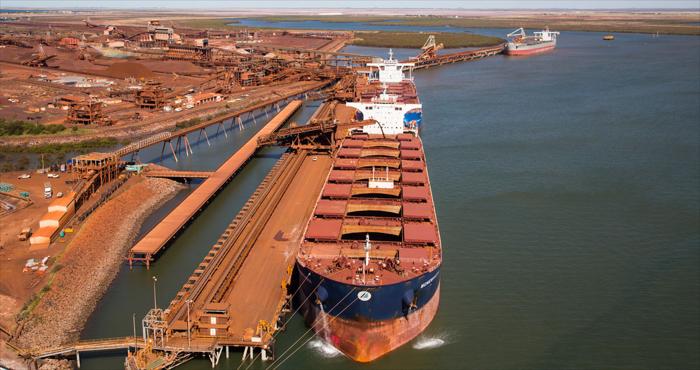
APM Terminals and Eurogate aim for and are in advanced negotiations for a long-term partnership under which they plan to invest one billion Euro in the modernization of their joint container terminal North Sea Terminal Bremerhaven.
The one billion Euro investment aims to upgrade NTB into one of the world's most efficient and resilient container handling facilities, with zero greenhouse gas emissions operations. The plan is to modernize the equipment and increase the terminal's capacity from 3 to 4 million TEU throughput annually.
Through the electrification of equipment and the use of renewable electricity, the terminal is intended to operate with zero GHG emissions, the first of its kind in Germany. The planned investments remain subject to internal and external approvals.
Vincent Clerc, CEO of A.P. Moller - Maersk, stated that Bremerhaven has unique potential to grow as a strategic hub in the region and to support cargo flows into Germany as well as their ocean network.
Michael Blach, Chairman of the EUROGATE Group Management Board, stated that the joint project to equip the terminal with state-of-the-art technology and decarbonize the operations, thereby making NTB fit for the coming decades.
Andreas Bovenschulte, Mayor of Bremen commented that Bremerhaven will be well positioned for the future and its importance in the North Range will be strengthened.
In addition to the investments, the deepening of the Outer Weser river is an essential prerequisite for fully unlocking the potential of the upgraded terminal.
A corresponding planning process is currently underway at the level of the public administration.
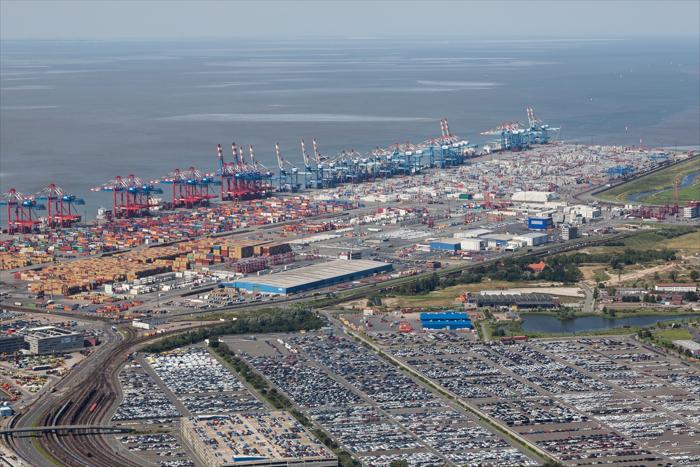
AD Ports Group has joined Africa Ports Development's (APD) 30-year concession to develop and operate a new dry bulk terminal at the Port of Douala in Cameroon.
Under the agreement, AD Ports Group and two UAE partners will own 60% of the operating company, alongside APD's 40% stake. AD Ports Group holds an effective economic interest of 51%.
AD Ports Group expects to invest around AED 320 million in phase one of the project. The first phase includes two berths and about 450 metres of quay wall, with annual capacity of around 4 million tonnes. The terminal will handle cargo such as clinker, gypsum, fertiliser, and grain.
Construction is scheduled for 2026-2028. The project aims to meet rising demand at Cameroon's main maritime gateway and strengthen Central African supply chains.
The Port of Douala handles around 80% of Cameroon's bulk cargo and 85% of national rade volumes. The new terminal is expected to create up to 4,000 direct and indirect jobs and support long-term economic growth.
AD Ports Group said the project expands its African footprint and strengthens Douala's role as a regional trade hub.
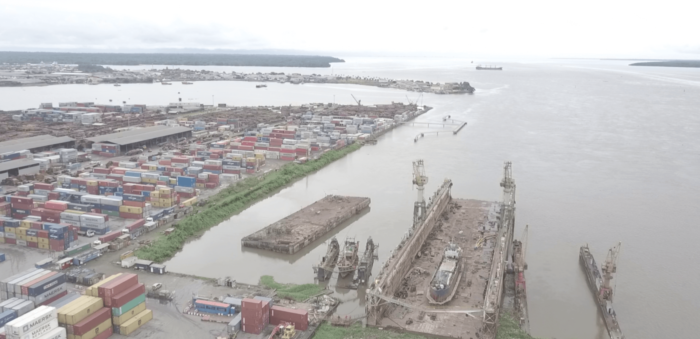
The Port of Liverpool has received its largest-ever shipment from ADM, highlighting the port's growing bulk-handling capabilities and its role in supporting the UK's food and feed supply chains.
The vessel, arriving from New Orleans, USA, measured 229 metres and carried more than 67,000 metric tonnes of cargo, the biggest ADM consignment ever handled at the port. The shipment included a mix of agribulk commodities such as maize, high-protein soya, soya hull pellets, and corn gluten. These products are essential for the UK's agricultural and animal feed sectors.
Managing multiple product types in a single consignment demonstrates the Port of Liverpool's ability to handle high-volume, complex bulk cargoes while maintaining segregation, quality control, and fast turnaround times.
Jonathan Lane, Managing Director of ADM Agriculture Ltd and UK Country Manager, said the shipment "represents an important milestone for ADM" and highlights the strength of its global supply chains. He noted that the partnership with Peel Ports and the Port of Liverpool is central to ADM's commitment to supplying high-quality feedstuffs to the UK.
Tom Harrison, Group Strategic Accounts Director at Peel Ports, added that the record shipment underscores the port's deep-water access, modern infrastructure, and strong onward connectivity, enabling customers to move essential goods efficiently from ship to market.
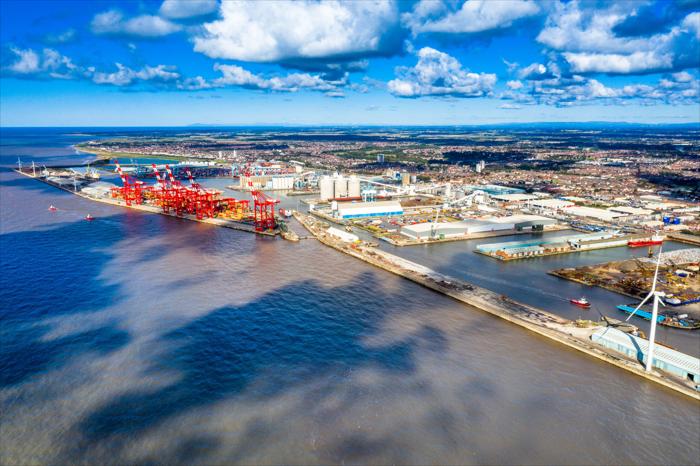
DB InfraGO has started the large-scale renewal of the Hagen - Wuppertal - Cologne corridor, one of the key rail arteries linking the Ruhr area, the Bergisches Land region and the Rhine corridor. The works form part of Germany's national corridor modernisation programme and follow previous large-scale renewal projects on heavily used freight and passenger routes. The construction phase will run for around five months, during which long-distance and freight trains will be diverted, while regional and S-Bahn services will be partly replaced by bus services.
The project bundles infrastructure upgrades along the entire corridor, including track, electrification and station works. The approach is based on lessons learned from previous "general overhaul" projects, where concentrated construction phases are used to restore infrastructure reliability faster than through phased renewals. The corridor is important for both regional passenger flows and freight movements between western Germany, Benelux and southern Germany.
At the same time, DB InfraGO has launched a second major renewal on the Nuremberg - Regensburg corridor in Bavaria, one of the busiest rail routes in the region with more than 350 trains per day. The route is part of the Rhine-Danube European transport axis and plays a key role in rail connections between Germany and Austria. During the five-month closure period, long-distance and freight trains will be diverted, while regional passengers will be served by replacement bus services and additional capacity on alternative rail routes.
The works in Bavaria include large-scale renewal of track, overhead lines and signalling systems, alongside preparation for the rollout of ETCS train control technology. Additional crossovers and earthwork stabilisation are planned to improve operational flexibility and reduce disruption risk in the future. Station modernisation is also included, with a focus on accessibility and consistent passenger facilities standards.
Together, the two corridor projects represent part of Germany's strategy to rebuild network resilience on heavily loaded routes, where ageing infrastructure has been a major source of delays affecting both passenger services and international freight flows.
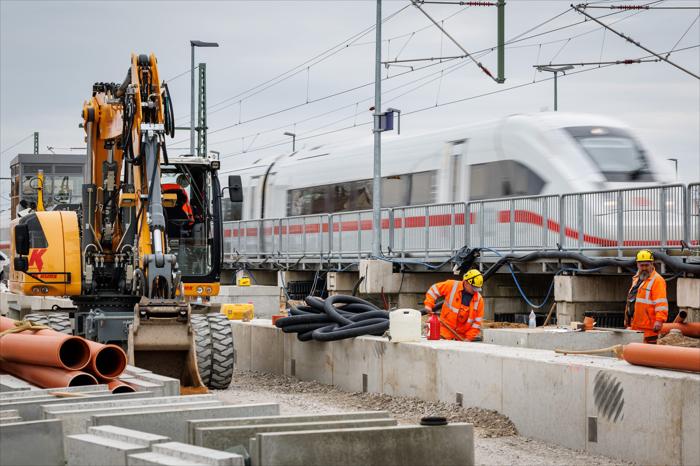
The Georgia Ports Authority welcomed the announcement of a new trade agreement between the US and India, opening the way for increased business between the two countries.
GPA President and CEO Griff Lynch, stated that GPA has long thought India will be the key to the future success with the market proximity the US East Coast gateway port offers.
Georgia Ports handled 22% of India's containerized trade on the US East Coast in fiscal year 2025.
Savannah's overall loaded container trade with India grew by nearly 48% to 304,450 twenty-foot equivalent container units FY2021-2025.
With India set to become the world's fourth-largest economy in 2026, the country holds major trade potential for American shippers.
Sourcing from India helps US companies diversify their supply chains and offers a cost-competitive procurement strategy. India is expected to outpace other Asian nations this year, with a projected GDP growth of 6.5% in 2026, according to the World Bank.
The Port of Savannah offers faster total transit times for Indian cargo destined for markets such as Atlanta, Memphis, and Nashville, compared to West Coast gateways.
Ocean routes are shorter from India to the US East Coast, and Savannah delivers faster rail service.
Six weekly vessel services provide direct Savannah-India connections, with a total of 10 services linking Savannah to the broader Indian subcontinent.
Eleven ocean carriers operate on these routes, delivering transit times as short as 29 days.
Direct services call Nhava Sheva/Mumbai, Pipavav, and Hazira with additional port calls on the Indian subcontinent, including Colombo, Sri Lanka.
